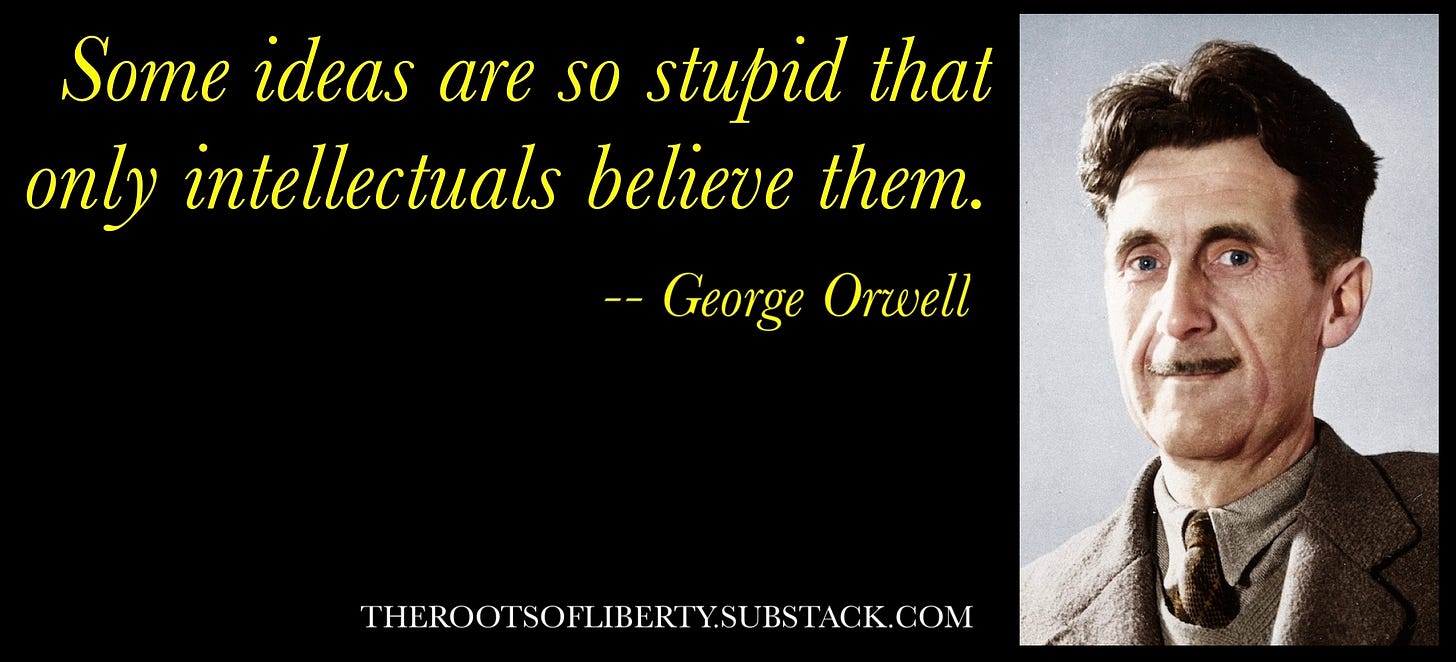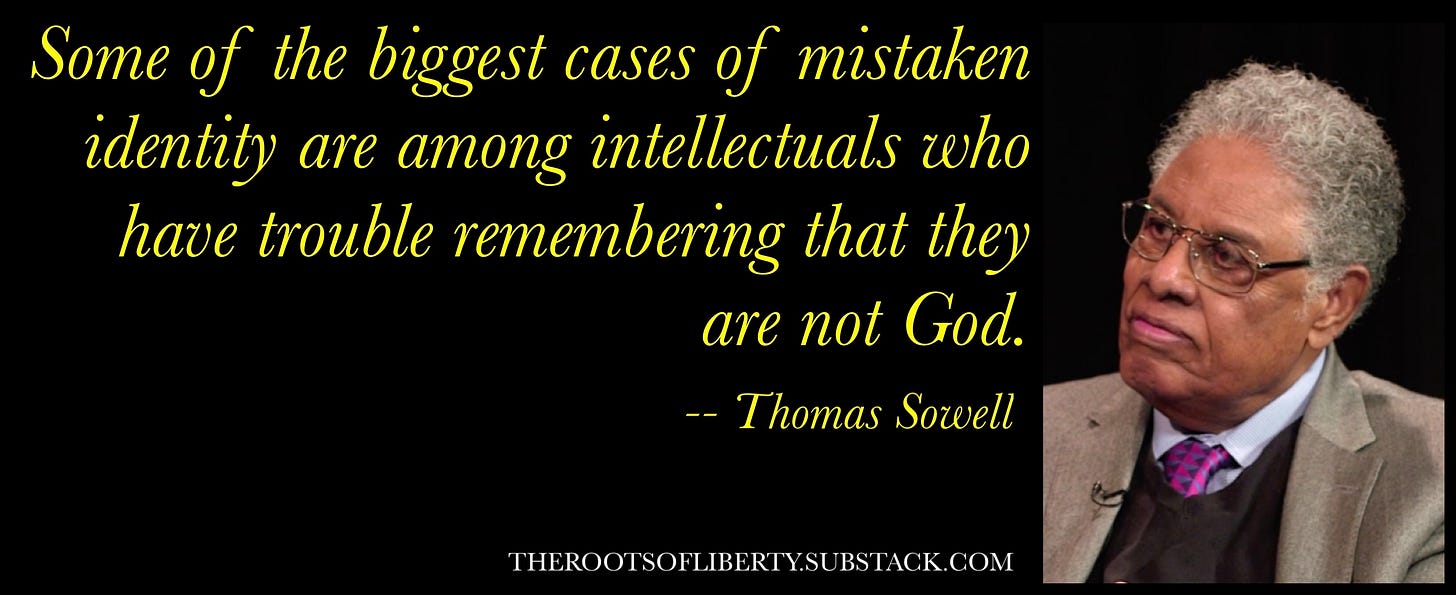Thomas Malthus died 189 years ago, in 1834. Like many economists of note, he made bold predictions that turned out to be spectacularly wrong. He theorized the "Malthusian Trap," which posited that population growth would outstrip humanity's ability to feed itself, with famine, war, and societal decay as the inevitable result.
Things didn’t quite go as predicted. Emphasizing the “dismal” part of “the dismal science,” Malthus failed to account for human ingenuity.
His theory, despite proving as wrong as can be, proved both popular and persistent. People have simplified it down to variants of "since nothing is infinite, eventually X will run out and we will all suffer and die," and applied it to every resource and element in our lives. More recent doomsayers such as Paul Ehrlich have made bank on it, and Google informs me that "The New Malthusians" was an editorial title in 1972 (New York Times), 2011 (AEI), and 2023 (The Atlantic), to name but three. That population growth decelerates of its own accord with societal advances - another often-ignored piece of the puzzle - has been understood for half a century or more.
Death and destruction foisted upon humanity for its "irresponsible" behavior is not just limited to secular (though Malthus was also a cleric) philosophers of recent history. Divine punishment is a time-tested meme. Many religions include “end times,” where the wicked are punished and the pure (and subservient) are rewarded. The Flood Myth exists in many cultures and religions across history, and its existence in North American native cultures as well as those closer to the Fertile Crescent speaks of a stronger impetus than the simple lifting of a tale from the Epic of Gilgamesh by subsequent religions.
That impetus is human nature. While human knowledge, morality*, and societies themselves evolve, human nature does not, at least not in the time frame of human civilization. The predilections that have evolved across hundreds of thousands of years to improve the chance that our genes propagate remain, no matter how much we recognize their mis-guidance in many things.
We have a tendency to overemphasize the negative, because those who do are more likely to survive low probability dangers. Therein lies our attraction to doom. We have a desire for control, either direct or vicarious, for similar reasons, and lack of control creates discomfort and distress in our lizard brains. We distrust "other," i.e. those not of our tribe, both because our hunter-gatherer ancestors competed with those "other" for food and other scarce resources, and because the propagation of our genes was threatened by those "other." That distrust of "other" prompts us to subjugate our enemies, and to create enemies to subjugate (see: moral panics, climate catastrophe scenarios, Trump) if none that actually threaten us exist. Those enemies are often proximate - it is a reality that we care less what happens on the other side of the globe than in our neighbor's yard. The plethora and popularity of post-apocalyptic books, movies, and television shows, the schadenfreude in seeing the “irresponsible” get their supposed just deserts, and the sheaf of cautionary tales such as Icarus and Aesop’s grasshopper further affirm the negative’s root in human nature.
Malthusian doomsaying plays into all these elements of human nature, which is why it is so persistent and so immune to refutation. Since everything nowadays is about marketing as much as anything else, Malthusianism (much like Marxism), is being given the Madison Avenue treatment.
Behold, "Degrowth."
Ably deconstructed by Roger Pielke here, "degrowth" is the de mode way of saying "there are too many people consuming too many resources, and WE have to do something about it." The latest euphemism for “finite resources” is “planetary boundaries.” You heard it there first.
"WE" is the Best-and-Brightest, of course. The people who fly private jets and ride limousines to climate conferences, whose latest gag is end-running such quaintly antiquated notions as nations and representative governments since some of them aren't doing what 'needs to be done to save the planet.' Many of these elites figure there are too many people living too high a lifestyle out there - as in your personal transportation, your gasoline-powered anything, your single-family home, your plastic grocery bags, your hamburgers, and your seasonal fashions.
The other "we," as in you and I, could laugh them off, despite their massive wealth, but for the multitudes of "we" who support the elites' destructive messages and ideas and thereby empowers the WE. This is where human nature kicks in. The desires for vicarious control and crushing of enemies are ably exploited by feeding the doomsaying tendency. Dunning-Kruger makes an appearance as well, with people arrogantly positing that "since there is a finite amount of oil in the world, it's obvious that it'll run out at some point, and then what?" The shallowness of this five-seconds-of-cogitation argument doesn't seem to matter, sadly, even though we've been hearing about peak oil for half a century while continuing to find it faster than we burn it.
Here is a fun little countdown that says the world has a bit under 47 years of oil remaining.
Note the caveat: "excluding unproven reserves." Meanwhile, reserves have nearly doubled in the past 30 years, despite our on-going consumption (the World Oil Statistics page conveniently only shows us the past 15). Furthermore, it's not as if crude oil is simply a tank that will one day run dry and leave us saying "oh shit, now what?" If oil actually starts getting scarcer, prices will rise (that's what happens) and people who like to make money will innovate alternatives (that's also what happens) - well before that “oh shit” day (again, that’s what happens). "We" (or “WE”) don't have to plan for a moving-target event that's currently predicted half a century away, and that any thinking person knows will be much further forward than that.
But, again, doomsday sells. Not only becuase it appeals to human nature, but because it's such a simple and simplistic idea. We've all been conditioned to quick opinions, quick judgments, and quick vocalizations. The last is the worst, because once we say or write something, we have to battle human nature again to undo it should it prove wrong. Humans would rather defend their first opinions, even when shown to be wrong, than update them. Getting on the Malthus bus is easy. Hopping off after people have seen you riding it is harder.
As for degrowth (the word hasn't made it into spell-checkers yet, but when it does, you know it will have arrived) itself? Just the latest gambit to convince us that our "betters" should be given free rein (and reign) to downgrade our lives. Worse, they would deny billions the rise out of poverty that advancing human knowledge and technology provide, thus dooming those billions to shorter lives and the perpetuation of misery (misery is the baseline human condition).
All in order to "save the planet," i.e. to feed their egos.
That there are and have been some very, very smart New Malthusians doesn't mean that they are right. Malthus himself was very smart and Cambridge educated. Claudius Ptolemy had to be very smart to conceive the "celestial sphere" theory that kept the Earth at the center of the solar system and lasted 1500 years until Copernicus said (probably not exactly) 'this is both wrong and stupid.'
Ptolemy's failing lay in the conceit of the presupposition that the Earth was at the center of the solar system. The failing of the Best-and-Brightest is in believing their own hype, i.e. that they are indeed so much smarter that they can't be suckered into the newest doomsday cult.
That's what global warming and such offspring as "degrowth" are: doomsday cults. That some very smart people have been lured into them doesn't make them any more valid than the Millerites, The People's Temple (see: Jonestown), the Branch Davidians, Heaven's Gate, Aum Shinrinkyo, The Fountain of the World, Falun Gong, or any of the myriad others, old and recent. That countless past predictions of global-warming apocalypse have not occurred doesn't dissuade them, nor do the myriad failed predictions of peak oil, of population bombs, or of impending famine (worth noting: just about every significant famine in history has political roots).
Supported as they are by human nature, Malthusian ideas will never go away. All we can do is watch for them and debunk them, via facts, via history, and via mockery if need be, when they emerge like mushrooms from dung and darkness. At their heart, they are misanthropic, and those who advance them as a reason to put the boot on human growth and happiness are also filled with hate for their fellow humans, no matter how much they claim exclusive “care for others.” They deserve nothing but contempt.
* If you don’t think morality evolves, consider just two things: slavery and animal cruelty. Slavery was as normal as food, clothing, and shelter across 90% of human civilization's history, but every modern thinker today considers it abhorrent. Similarly, indifference to animal cruelty only began to evolve into an aversion to senseless infliction of harm in the last couple centuries. Other examples exist, and at the root of many of them are the values of the Enlightenment and the advent of the Age of Reason.








Peter, do you think that the folks sounding alarm bells about AI are Malthusian doom sayers, or is there legitimately something to worry about?
“Ptolemy's failing lay in the conceit of the presupposition that the Earth was at the center of the solar system. The failing of the Best-and-Brightest is in believing their own hype, i.e. that they are indeed so much smarter that they can't be suckered into the newest doomsday cult.”